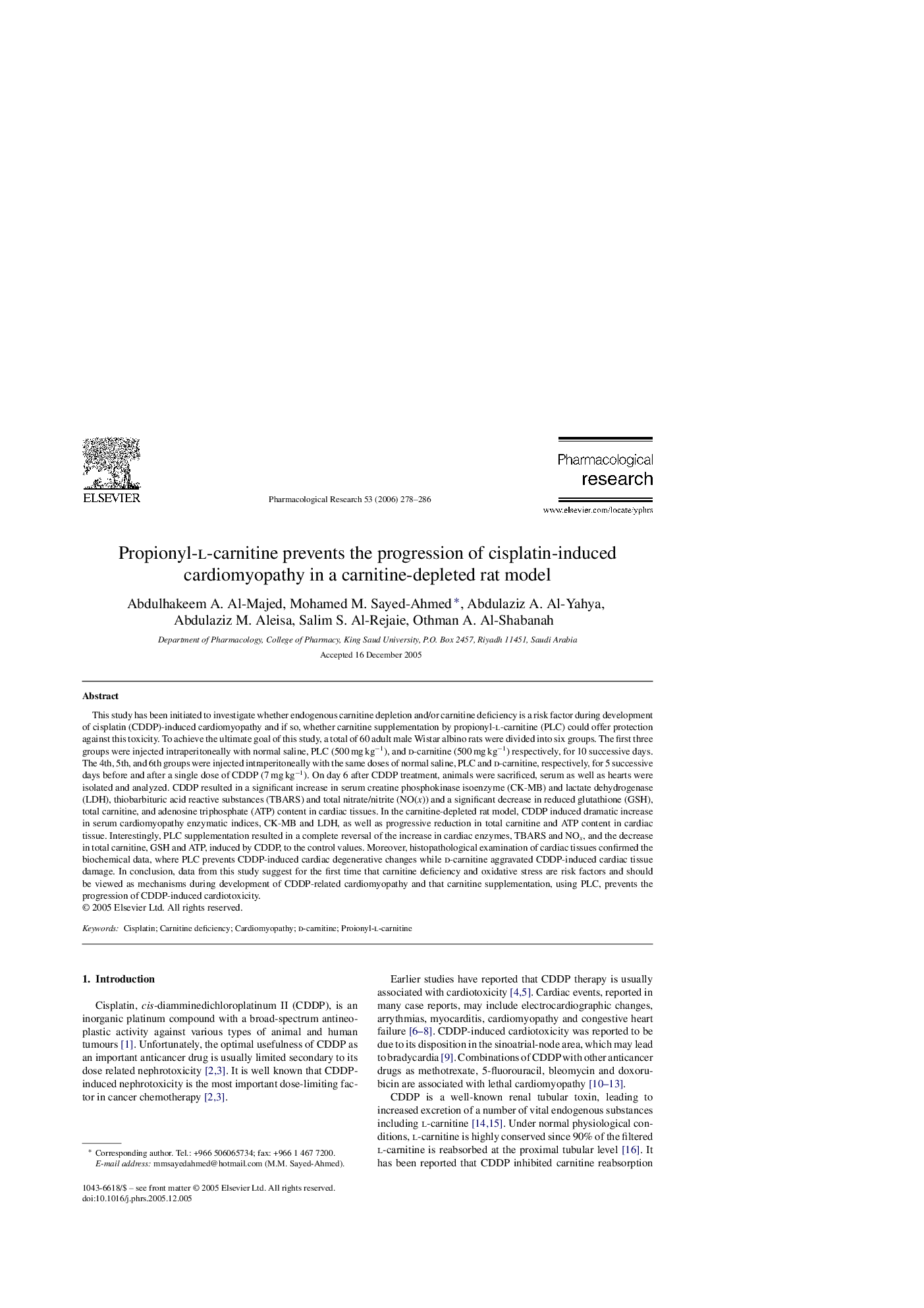| Article ID | Journal | Published Year | Pages | File Type |
|---|---|---|---|---|
| 2563019 | Pharmacological Research | 2006 | 9 Pages |
This study has been initiated to investigate whether endogenous carnitine depletion and/or carnitine deficiency is a risk factor during development of cisplatin (CDDP)-induced cardiomyopathy and if so, whether carnitine supplementation by propionyl-l-carnitine (PLC) could offer protection against this toxicity. To achieve the ultimate goal of this study, a total of 60 adult male Wistar albino rats were divided into six groups. The first three groups were injected intraperitoneally with normal saline, PLC (500 mg kg−1), and d-carnitine (500 mg kg−1) respectively, for 10 successive days. The 4th, 5th, and 6th groups were injected intraperitoneally with the same doses of normal saline, PLC and d-carnitine, respectively, for 5 successive days before and after a single dose of CDDP (7 mg kg−1). On day 6 after CDDP treatment, animals were sacrificed, serum as well as hearts were isolated and analyzed. CDDP resulted in a significant increase in serum creatine phosphokinase isoenzyme (CK-MB) and lactate dehydrogenase (LDH), thiobarbituric acid reactive substances (TBARS) and total nitrate/nitrite (NO(x)) and a significant decrease in reduced glutathione (GSH), total carnitine, and adenosine triphosphate (ATP) content in cardiac tissues. In the carnitine-depleted rat model, CDDP induced dramatic increase in serum cardiomyopathy enzymatic indices, CK-MB and LDH, as well as progressive reduction in total carnitine and ATP content in cardiac tissue. Interestingly, PLC supplementation resulted in a complete reversal of the increase in cardiac enzymes, TBARS and NOx, and the decrease in total carnitine, GSH and ATP, induced by CDDP, to the control values. Moreover, histopathological examination of cardiac tissues confirmed the biochemical data, where PLC prevents CDDP-induced cardiac degenerative changes while d-carnitine aggravated CDDP-induced cardiac tissue damage. In conclusion, data from this study suggest for the first time that carnitine deficiency and oxidative stress are risk factors and should be viewed as mechanisms during development of CDDP-related cardiomyopathy and that carnitine supplementation, using PLC, prevents the progression of CDDP-induced cardiotoxicity.
